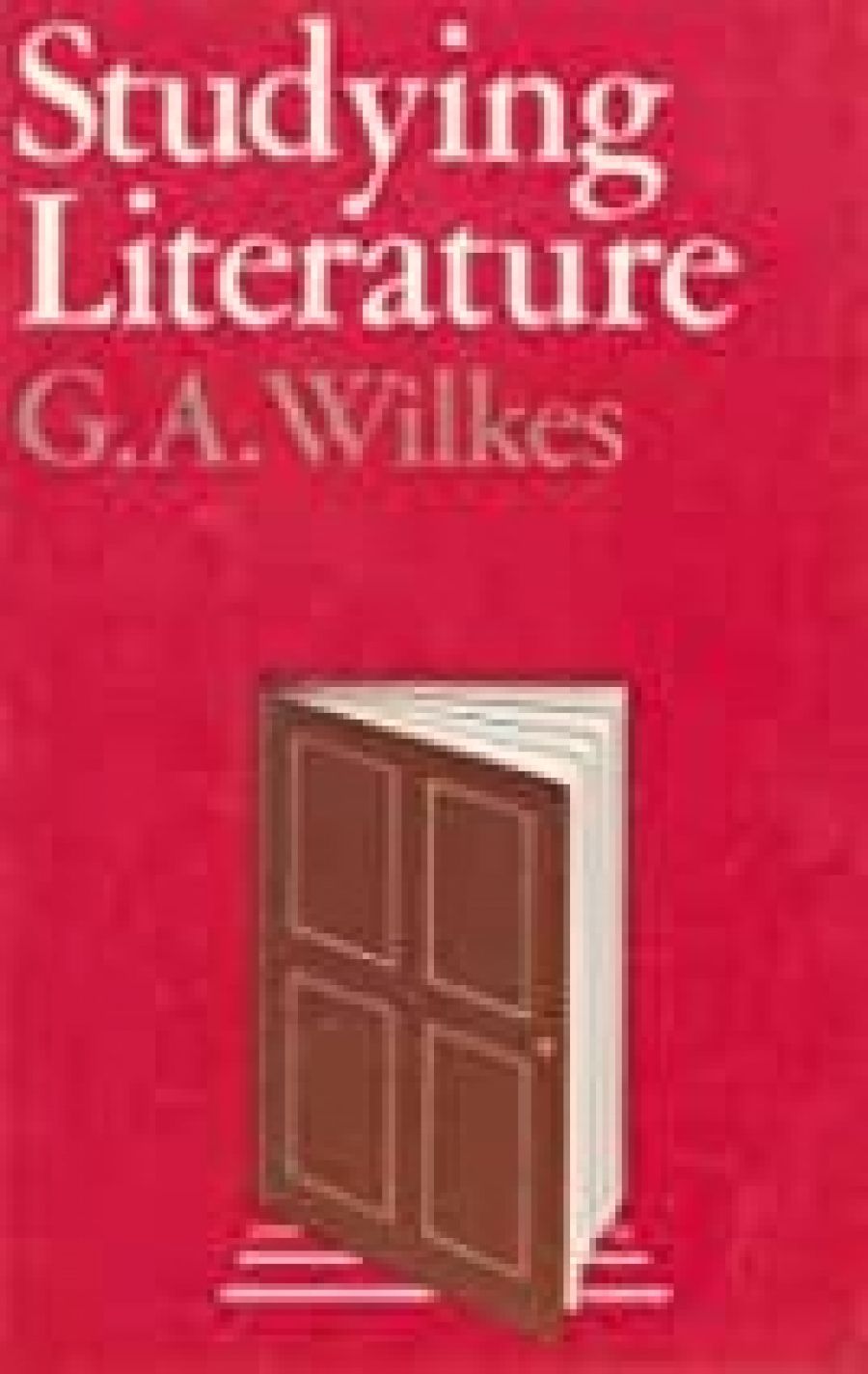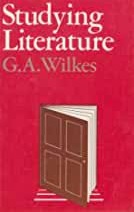
- Free Article: No
- Contents Category: Literary Studies
- Review Article: Yes
- Article Title: Such is Literature
- Article Subtitle: Lit crit for tyros
- Online Only: No
- Custom Highlight Text:
The reasons for which anyone finally values a literary work – for its insight into human behaviour, for the place it occupies in some aesthetic hierarchy – lie beyond the control of all but that reader himself. My concern is with the earlier and possibly sub-critical activities of gaining access to the text, making it fully present to the reader, putting him into a position to judge for himself.’ (p.3) This is the purpose of G.A. Wilkes’ Studying Literature, as expressed in the first chapter, ‘Functions of Criticism.’ The book, according to the preface, evolved from material delivered to English I classes at the University of Sydney. Because these students are the intended addressees, Studying Literature is readable; and, in its occasional humorous debunking of The Literary Establishment, and its advice to the student, it is also a valuable handbook for novices in the study of literature.
- Book 1 Title: Studying Literature
- Book 1 Biblio: Sydney University Press, $7.95 pb, 92 pp
- Book 1 Cover Small (400 x 600):

- Book 1 Cover (800 x 1200):

More sophisticated readers of such a text are likely to inquire into the theoretical leanings of the author. Professor Wilkes obliges with a plain statement: ‘I prefer an attitude of eclectic scepticism. We may be eclectic in welcoming illumination which comes from any approach, but sceptical in not allowing any one approach to override all the others’ (p.2). This is a sensible approach to take in writing a book designed for students who, perhaps, should not be expected to take a stand parti pris with regard to current trends and orthodoxies in critical theory in their first year of study at the university level.
Nonetheless, the stated attitude of eclectic scepticism in Studying Literature is somewhat disingenuous. Though the practised reader of literary theory will recognise certain structuralist features in this book – for example, Wilkes’ use of intertextuality – the underlying theory of Studying Literature is New Criticism, and is recognisable both from the way in which the literary texts examined by Wilkes are treated as formal objects, and from the assumption, implicit in Wilkes’ selection of texts for comment, of a Great Tradition in literature. The book suffers consequently from the tendency apparent particularly in the later New Critics to favour certain works of literature without explanation of or justification for their status. (The preface justifies the selection with the argument that these texts are already familiar to the students from the Higher School Certificate syllabus: this line of argument simply reinforces the assumption, whether tacit or explicit, of a canon of acceptable and privileged works.)
It is of course fashionable these days to decry New Criticism and to pursue more recent and more difficult literary theories, many of which are concerned, as Wilkes observes in his first chapter, with the situating of literature in different, often non – ‘literary’ fields of study. However, the problem here is not lack of fashion, but a masking of certain crucial issues which recent theories attempt to confront. To argue, as Wilkes does, that ‘The theoretical justification of the study of literature could be the subject of another book; it is not the subject of this one’ (p.2) begs a number of questions. To ask ‘What is literature for?’ may well be, as Wilkes suggests, ‘another version of the question “What is life for?”,’ though many readers may doubt it. More to the point, ‘What is literature for?’ invites us to formulate an answer – or, indeed, several answers, if we are to be truly eclectic as well as sceptical – that will tell us how to read literature; and Professor Wilkes does some disservice to his student readers in smuggling this issue away under the pretext that it is merely philosophical, and therefore not germane to the study of literature.


Comments powered by CComment